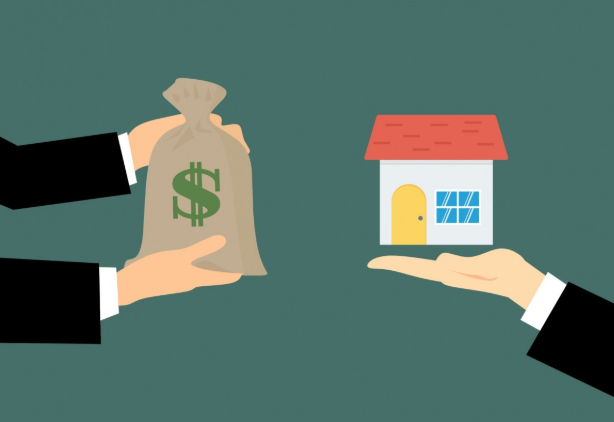A commercial mortgage, or commercial remortgage, is a loan that is secured by a commercial property. Commercial mortgages can be used to purchase business premises such as offices, shops, and restaurants. Various financial institutions offer mortgages for new business owners. A mortgage is one type of agreement. If the borrower fails to make the payments, the lender can take the property. Commercial mortgages are a great way to finance the purchase of new premises or the expansion of existing businesses.
A Commercial Mortgage
 In exchange for a loan, a home or other expensive property will usually be given. The contract will sign for the home as security. If the borrower fails to pay the loan repayments, he is required to surrender the mortgaged property. The lender can take your property and get the cash or any other payment due. They can be used to purchase other business assets, such as machinery or plant.
In exchange for a loan, a home or other expensive property will usually be given. The contract will sign for the home as security. If the borrower fails to pay the loan repayments, he is required to surrender the mortgaged property. The lender can take your property and get the cash or any other payment due. They can be used to purchase other business assets, such as machinery or plant.
You can also use a commercial mortgage to finance investment in land or properties that will be used commercially. Commercial mortgages can be used for most commercial buildings such as offices and shops, and are available to both new and established businesses. Commercial mortgages have lower interest rates than unsecured business loans, and repayment terms are generally longer. They are useful for any type of business financing.
What About a Remortgage
Remortgaging could be a good option if you have a commercial mortgage on the business premises of your company. You can unlock equity in your commercial property by using a commercial remortgage. You may also have the opportunity to switch to a cheaper, more competitive mortgage, particularly if your credit rating or business history has improved since your first commercial mortgage. You can use the money that you get from a commercial mortgage refinance to do many things for your company. You could buy additional stock or invest in new machinery and other fixed assets like vehicles. You could also use the money to pay off any outstanding bills or repay other loans such as the company’s overdraft.
Bottom Line
Although they require constant credit ratings, agents and monetary institutions may be able to offer different loan terms for different customers at different times. The distinction between the rock bottom value of a credit product and the maximum value the recipient is willing or able to pay is called an excess. The excess will be added to the value that the buyer is quoted. It will be included in all variable and fixed loans, regardless of the number of interest rates, points, or charges. Although the value of any loan may be exaggerated, it will still be quoted by a bank official.…



 Early the next morning, the materials arrived at my house. Once the materials were unloaded, I began hauling the 10-foot-long boards and corrugated metal sheets into the yard and arranging them in a pattern that more or less matched the way they were to be assembled. After securing the boards with 4-inch screws, I applied a long-staple gun to staple the receiver and electrical wires inside the house to better protect them from the elements.
Early the next morning, the materials arrived at my house. Once the materials were unloaded, I began hauling the 10-foot-long boards and corrugated metal sheets into the yard and arranging them in a pattern that more or less matched the way they were to be assembled. After securing the boards with 4-inch screws, I applied a long-staple gun to staple the receiver and electrical wires inside the house to better protect them from the elements. I built the rest of the frame on solid ground, so I didn’t have to hold everything down with one hand while securing the deck screws with the other. Cut four suspenders at exact 45-degree angles. I surveyed the board’s width with a ruler, then indicated that length on the board’s edge and cut around the corner from there to make a triangle.
I built the rest of the frame on solid ground, so I didn’t have to hold everything down with one hand while securing the deck screws with the other. Cut four suspenders at exact 45-degree angles. I surveyed the board’s width with a ruler, then indicated that length on the board’s edge and cut around the corner from there to make a triangle.  These two boards will be screwed into their nail, with their end holding the frame as I lift it, while their different future will rest on the ground to keep the structure from coming back down. To generate the perfectly horizontal frame across the entire surface, I raised the posts a bit. I poured a large amount of thick prepackaged concrete to increase its elevation just enough to make my bubble perfect.
These two boards will be screwed into their nail, with their end holding the frame as I lift it, while their different future will rest on the ground to keep the structure from coming back down. To generate the perfectly horizontal frame across the entire surface, I raised the posts a bit. I poured a large amount of thick prepackaged concrete to increase its elevation just enough to make my bubble perfect. 
 Electricity, water, and HVAC (Heating, Ventilation, and Air Conditioning) are three basic facilities that make a house fit for habitation. Without them, no one will be interested in buying your home. And to save your time, you can ditch that idea of conducting the inspection by yourself. One reason is that you are going to need the report from the repairer as a requirement document for your house’s sale. The second reason, you can’t afford any mistakes in the repair because if they go unnoticed until the deal is sealed, the buyer may file a lawsuit against you once he/she finds out about the defects.
Electricity, water, and HVAC (Heating, Ventilation, and Air Conditioning) are three basic facilities that make a house fit for habitation. Without them, no one will be interested in buying your home. And to save your time, you can ditch that idea of conducting the inspection by yourself. One reason is that you are going to need the report from the repairer as a requirement document for your house’s sale. The second reason, you can’t afford any mistakes in the repair because if they go unnoticed until the deal is sealed, the buyer may file a lawsuit against you once he/she finds out about the defects. The curb appeal is the aesthetics of your house seen from across the street. And the easiest way to check it is by looking for it by yourself. If you notice any asymmetries or deformities, fix them immediately. Cracks on the wall, broken shingles, worn-out gutters, and rugged landscape in the lawn are some examples of problems that can ruin people’s impression of your house. Also, repaint the wall, window frames, door frames, and the yard’s fence.
The curb appeal is the aesthetics of your house seen from across the street. And the easiest way to check it is by looking for it by yourself. If you notice any asymmetries or deformities, fix them immediately. Cracks on the wall, broken shingles, worn-out gutters, and rugged landscape in the lawn are some examples of problems that can ruin people’s impression of your house. Also, repaint the wall, window frames, door frames, and the yard’s fence. You may have a water fountain in the yard, exotic plants, and backyard toys. What you need to consider is that not all people want them in their house. In fact, some even perceive such embellishments as wasteful. Therefore, it is better to remove them by yourself and sell them separately, not included with the house. But if you don’t have the time, just remove them and throw them away.
You may have a water fountain in the yard, exotic plants, and backyard toys. What you need to consider is that not all people want them in their house. In fact, some even perceive such embellishments as wasteful. Therefore, it is better to remove them by yourself and sell them separately, not included with the house. But if you don’t have the time, just remove them and throw them away.
 Most people wonder why the entire process of selling a home seems to drag on for so long even when you correctly follow the procedures involved. Maybe there are some things that you just aren’t doing right such as advertising. If you have an intention of selling a house, then you must be prepared to put up a brave fight to see things moving. That’s not all; you must utilize all the resources at your disposal in the right way that will yield tangible results.
Most people wonder why the entire process of selling a home seems to drag on for so long even when you correctly follow the procedures involved. Maybe there are some things that you just aren’t doing right such as advertising. If you have an intention of selling a house, then you must be prepared to put up a brave fight to see things moving. That’s not all; you must utilize all the resources at your disposal in the right way that will yield tangible results. It is said of them that most real estate brokers are con artists and swindlers who are just conniving to steal your hard earned money. This is not the case with some of them, we still have the best there is and do take their job very seriously. What’s more, they value positive feedback and response from clients who are satisfied with their services. Make sure that the real estate broker that you intend to hire has years of experience behind them and understand their duties and obligations quite well. They must have learned the ropes of hooking clients and will do so without much of hustle.
It is said of them that most real estate brokers are con artists and swindlers who are just conniving to steal your hard earned money. This is not the case with some of them, we still have the best there is and do take their job very seriously. What’s more, they value positive feedback and response from clients who are satisfied with their services. Make sure that the real estate broker that you intend to hire has years of experience behind them and understand their duties and obligations quite well. They must have learned the ropes of hooking clients and will do so without much of hustle. Any real estate agent will insist on the importance of location when looking for property for sale. The location is a major factor to consider before purchasing a property. You must get property in your ideal location. However, you can compromise on the location if you want to reduce the cost of buying a home. It is important to note that a property located in a prime location will attract a higher price tag.
Any real estate agent will insist on the importance of location when looking for property for sale. The location is a major factor to consider before purchasing a property. You must get property in your ideal location. However, you can compromise on the location if you want to reduce the cost of buying a home. It is important to note that a property located in a prime location will attract a higher price tag. One of the most important factors that you must consider when looking for property for sale is the budget you have set aside for the investment. This is a major factor since it will guide you on your options. The budget determines the kind of property you can purchase. There is a close relationship between the budget and the location of the property. As mentioned earlier, a prime location will attract a higher price.
One of the most important factors that you must consider when looking for property for sale is the budget you have set aside for the investment. This is a major factor since it will guide you on your options. The budget determines the kind of property you can purchase. There is a close relationship between the budget and the location of the property. As mentioned earlier, a prime location will attract a higher price.